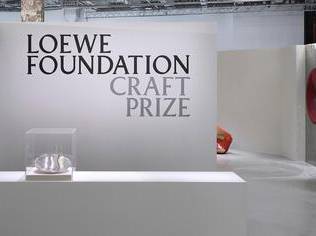By Sam Gaskin and Yiling Pan of
Public outrage over supermodel Liu Wen's recent holiday greeting demonstrates how easy it has become to "hurt the feelings" of the Chinese people (or their bots), even when using social media sites that are banned in China.
Liu was heavily criticised for writing "Happy Lunar New Year" instead of "Happy Chinese New Year" on her Instagram. Lunar New Year is celebrated around Asia in countries such as Singapore, South Korea, and Vietnam, places where the holiday shares much in common with how it is celebrated in China. Because of her use of the more inclusive term, Liu was accused of turning her back on her country.
Liu's experience is instructive of how challenging it has become for international celebrities and brands trying to cater to both China and other markets. The stakes are especially high as China has demonstrated its willingness to close access to its market in response to perceived slights, lessons learned by both Marriott hotels and the Korean tourism industry.
Sometimes, challenging traditions and norms can resonate with consumers. SK-II’s "Leftover Women" advertising campaign, for instance, challenged a state-sanctioned notion that Chinese women should marry by age 25. But brands willing to tackle sensitive issues in their communications should understand the risks. These are 10 areas brands should take especial care.
1. China's Territorial Borders
In Chinese airports, flights to Taiwan, Hong Kong and Macau depart not from the domestic terminal, but the "International, Taiwan, Hong Kong and Macau" terminal. Special permits are required for Chinese tourists to visit them, but the People’s Republic is adamant that they are the territory of the People's Republic of China. In January this year, luxury hotel chain Marriott had its China website taken down after listing the destinations as "countries" in a dropdown menu. Even maps of China that do not include Taiwan can cause real problems.
2. Tibet and the Dalai Lama
The Tibetan independent movement and its leader, the Dalai Lama, are another no-go zone for China. German luxury automaker Mercedes-Benz was the latest brand to fall foul of this unofficial rule, posting a Dalai Lama quote on Instagram. Comments criticising the post were followed by an editorial criticizing the brand in the People's Daily. Mercedes-Benz issued an apology on Chinese social media site Weibo.
3. Xinjiang
China’s most northwestern province is home to much of China’' Uighur ethnic minority. Some exciting brands looking to celebrate Uighur culture, such as traditional textiles and garments, and materials such as silk and cotton from the region, do so in an environment of increasingly draconian security measures and efforts to assimilate Uighurs into Chinese culture.
4. Tiananmen Square
Known as the June Fourth Incident in China, the violent suppression of pro-democracy protests in 1989 remains an unmentionable topic in China. In April last year, Italian luxury brand Dolce & Gabbana shot campaign images of models posing in front of Tiananmen Square, located in the center of Beijing. The campaign was completely banned in China.
5. Unflattering Depictions of Xi Jinping
Though Chinese media are free to talk about the fashion tastes of Peng Liyuan, the wife of President Xi Jinping, Xi is not amused by even light-hearted analysis of how he presents himself. A meme comparing President Xi to Winnie the Pooh became the most censored image on the Internet after it went viral in 2015.
6. Human Rights
Thought it is not strictly forbidden, the Chinese government is conservative when it comes to civil rights, including women’s rights and LBGT issues. While older and rural Chinese tend to share this conservatism, the younger generation is much more supportive of LGBT culture, as evidenced by the rise of gender-blurring figures such as Chris Lee, the brand ambassador of Gucci, and Leah Dou, SK-II's brand ambassador. The gay yuan is an increasingly lucrative consumer segment in China.
7. Environmental degradation
China knows it needs to improve its environment, including air, water, and arable farmland, but often responds negatively to overt criticism. After allowing hundreds of millions of people to view Chai Jing's environmentalist documentary Under the Dome before suddenly banning it.
Nevertheless, brands can make contributions in this area, an urgent, compelling concern for Chinese consumers. Digital payments app Alipay has released a game called Ant Forrest that allows users to "plant" trees to limit erosion in deserts in Alxa League. By paying with Alipay a certain number of times per day, users will receive fertilizer to plant virtual trees on the app. Once the virtual trees are grown, Alipay plants real ones in the desert.
8. Japan
A favorite subject of state-sanctioned cinema, China’s resistance to Japan during the Second World War remains a central part of the government’s identity. That has caused trouble for many Japanese brands, especially automakers.
On the other hand, contemporary Japanese pop culture such as anime, cosplay and otaku has had a huge impact on the younger generation in China, becoming useful tools to reach for brands to reach this generation. Now, the popularity of anime has caused the government to remove it from streaming video sites.
9. K-pop
The conflict between South Korea and China over the THAAD missile program led to a ban on Chinese travel to Korea, and Korean pop culture, which has become increasingly influential in China, across product categories, since the 2000s.
Nonetheless, the K-pop influence can be sensed strongly in many Chinese cities, especially those among the third and fourth-tier. Tapping into China's love of Korean celebrities can still be an effective strategy, despite the risk.
10. "Vulgar" Western culture
Some Western culture is perceived as dangerous, contrary to the socialist values of the Chinese government. The latest target of this anxiety is hip-hop culture. Hip-hop and street culture exploded in China following the popularity of reality show Rap of China last year.
International brands including Estée Lauder collaborated with the top performers on the show before the government questioned the influence it was having on young Chinese people. When performer PG One was caught in an extramarital affair with another celebrity in January, the government banned not only hip-hop but also tattoos.
This article was first published here on Jingdaily.com



















